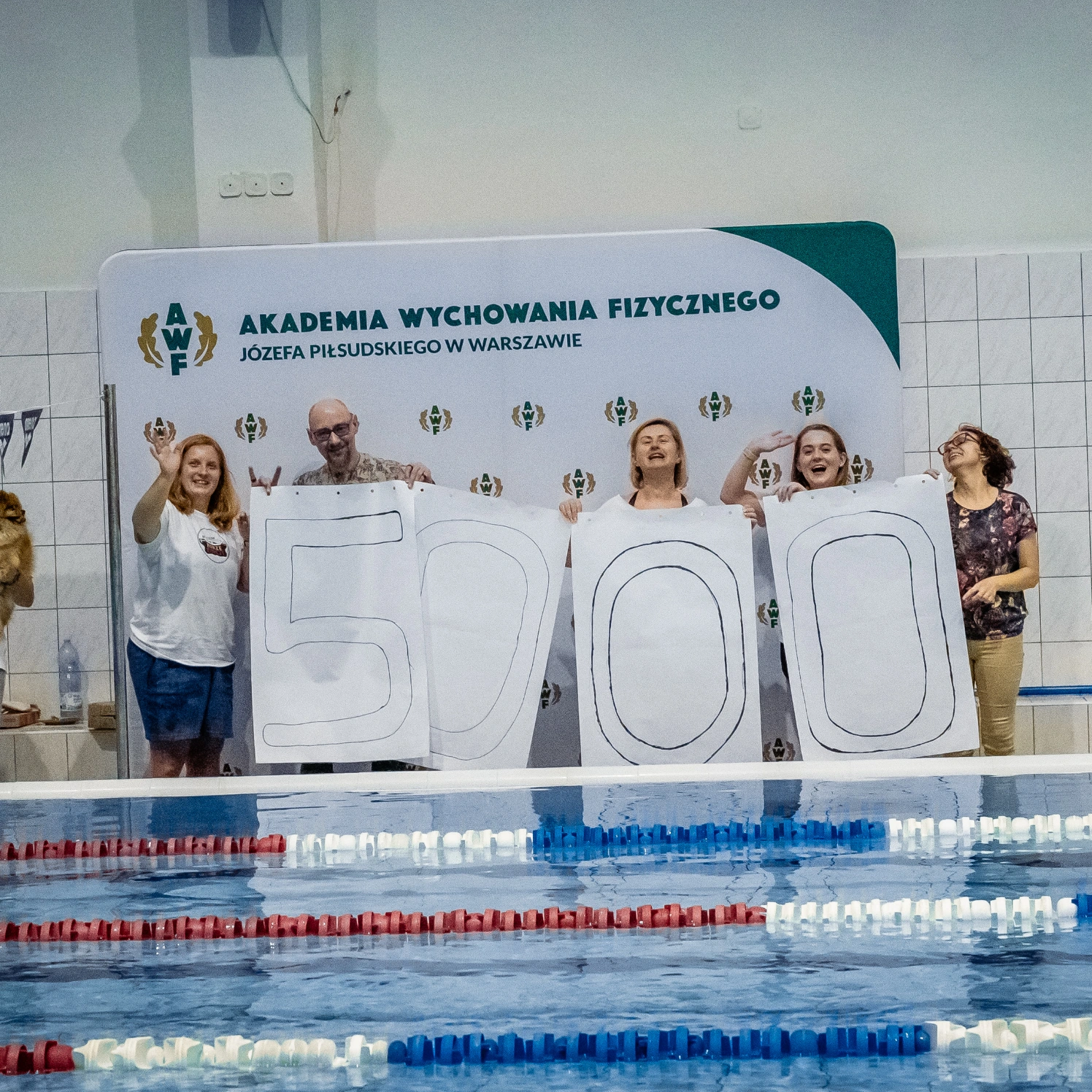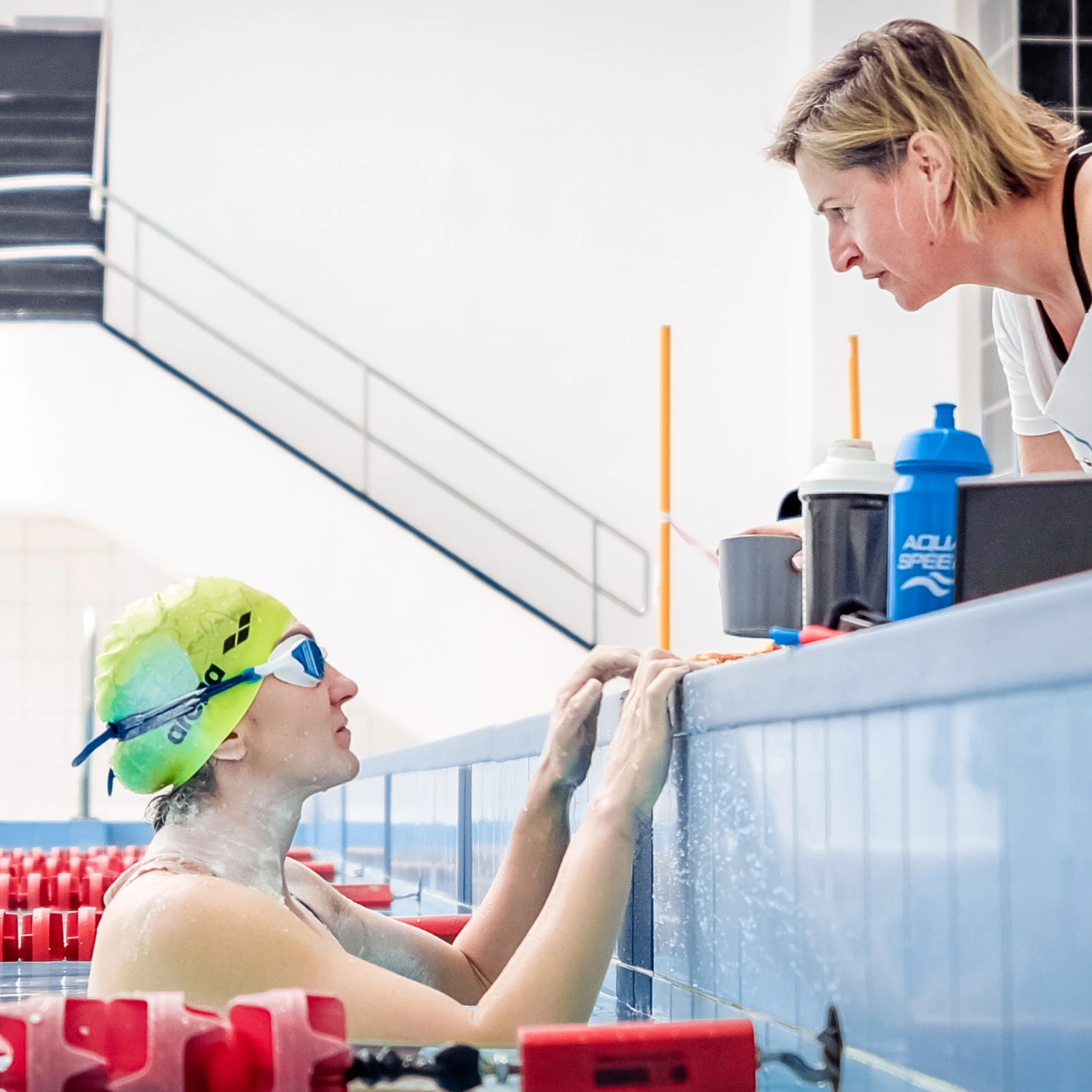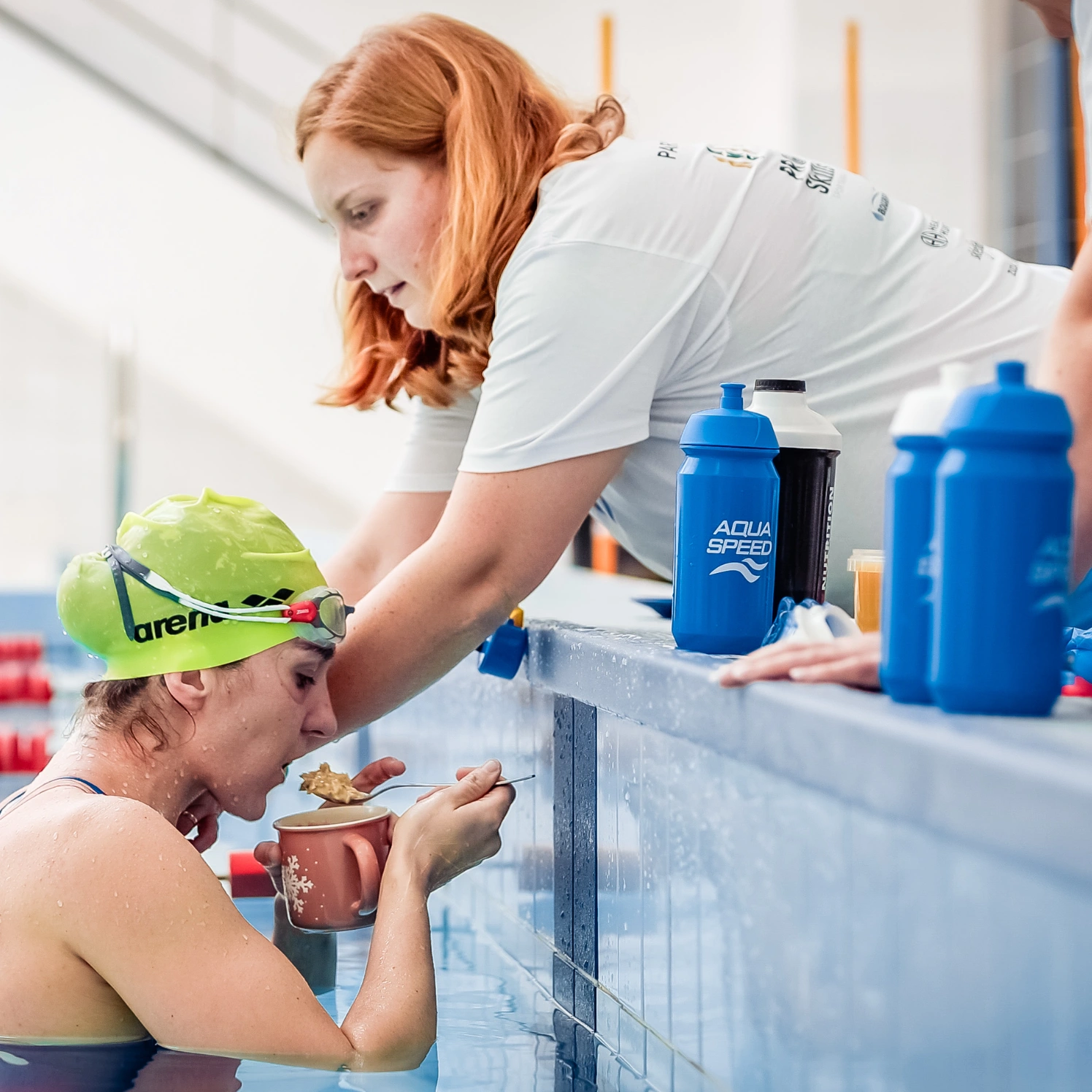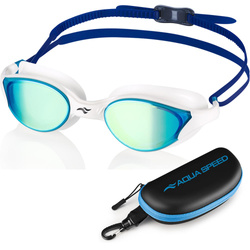Karolina Szczepaniak – an ultra-motivated swimmer

Karolina Szczepaniak is an ultra-motivated swimmer preparing for an extraordinary athletic achievement—swimming 172 km across the Baltic Sea, something that no one in the world has ever accomplished! As part of her training, the Olympian from Beijing and London has just set a Guinness World Record in long-distance swimming. Over the course of 48 hours, she covered an incredible 149 kilometers.
Preparations for Crossing the Baltic Sea
What is the most important aspect of your preparation—mentality, technique, or endurance?
First and foremost, I want to emphasize that the challenge I have decided to take on is unimaginably difficult. Some even say it’s impossible. Swimming across the Baltic Sea in a straight line requires covering a distance of 172 km. While this is an ultra-super distance, its execution depends on a masterfully planned and meticulously controlled game of details.
Everyone creates their own strategy for their athletic or life challenges. Mine includes elements such as swimming technique, endurance, strength, speed, stability, and a deep understanding of my body—especially regarding past injuries, even the smallest ones—so I can strengthen it during training with Paulina Batorzyńska.
Mental training is another major component, which, broadly speaking, involves EMOTIONS—understanding them, which leads to better self-awareness, and being open to discovering and accepting all aspects of myself, even the ones that aren’t always pleasant. After all, it’s essential to embrace who we truly are rather than create a sugar-coated illusion of ourselves.
Another crucial factor is nutrition, vitamins, and supplements used during training. Thanks to a professional scale, I can monitor my body composition weekly—this is incredibly important, especially in the context of increasing muscle and fat mass at a pace that doesn’t compromise my health.
It’s easy to see that this detailed strategy is being fine-tuned with the help of an incredible team of people who, like me, dare to believe that we will successfully cross the beautiful Baltic Sea on our very first attempt.


Mental Training in Ultra Swimming
What mental techniques do you use to maintain motivation during preparation and the swim itself?
[Laughs] I’ve heard a lot about motivation—after all, I work as a sports psychologist and mental coach myself. Motivation is just a kind of “wanting.” And ever since I started thinking about swimming across the Baltic, it has never disappeared.
I’ve been stubborn since childhood. My mom had a tough time with me because when I liked a pair of sports shoes, there was no way I would change my mind. She would drive all over Warsaw just to find the right size for me. Today, it’s me waking up and going to bed with my beloved stubbornness, which has helped me achieve so much in life.
The ability to talk to my own stubbornness and negotiate certain compromises is my current mental method—though you won’t find it in any book. [Smiles] I work with Beata Kaczor, a mental coach who promotes a healthy lifestyle. She keeps a close eye on my mindset. When I hit a mental roadblock and don’t know what to do, she calmly guides my mind onto a path that aligns with me. Beata isn’t a motivator—I wouldn’t call her that… “Kaczka” works with my emotions. With their acceptance and the desire to fulfill my needs, we can keep moving forward!
Additionally, I have to emphasize the importance of the people I surround myself with. They are the ones who bring me back to reality in my most challenging, emotionally charged moments. And we have an agreement—I listen to them in these situations, even if my inner voice protests against what they’re saying. A deal is a deal. I listen to my angels—that’s what I call the people who have always been there for me, are here now, and will likely stay by my side.
I think visualization has been used in sports for over 60 years now. I can’t imagine not using it in my training. And, as I mentioned before, emotions and the ability to manage them play a huge role in preparation—not just for sports but for life itself.
Do You Have Any Rituals or Exercises That Help You Maintain Focus and Confidence?
I was an athlete who, over a 17-year sports career, collected just over 100 medals at the Polish Senior Championships, culminating in representing Poland twice at the Olympic Games.
At one of these Olympics, I was the youngest member of the national team—probably in the entire history of the sport! I was just 15 years old. Because of this, I developed certain habits known as pre-race routines. I say certain habits because today, I listen to my body more and follow what it truly needs. Peace, long sleep, music I enjoy, breakfast in good company, and—above all—visualization, visualization, and more visualization. Additionally, I practice the ability to thank myself for what I do and truly feel that gratitude throughout my entire body.
This calms me. I am aware that I already know the rest of the script because I’ve practiced it countless times before. I simply switch from one program to another.


Nutrition During Training and Swimming Challenges
What dietary changes have you made in preparation for swimming across the Baltic Sea?
My past includes over 10 years of carefully watching what I ate and drank, including 5 years of a tough battle with anorexia—just to be able to continue living. That’s why the word “diet” brings a hint of sadness to me. Today, I have a different relationship with food, so for this challenge, I rely on meals delivered to my doorstep by a company that fuels me for the entire day. [Smiles] I don’t have to worry about grocery shopping, cooking, or standing in the kitchen—because after a full day of training, I honestly have no energy for it.
How do you test different nutrition strategies during training to ensure they’ll work on challenge day?
I started testing food strategies during the Otyliada competition last year. Since then, during longer training sessions, I bring something to experiment with—such as pudding with fruit, oatmeal with honey and peanut butter, or pancakes with cheese. I pay attention to how I feel after eating while still swimming.
So far, the only food that hasn’t sat well with me is bananas, so they won’t be on the Baltic Sea menu. [Smiles] Additionally, during the 24-hour competition in Bydgoszcz in August, my team and I also analyzed how food affected my emotions at different stages of the race.
Food is more than just nutrients to replenish—it can be a reason to smile, a boost of motivation to keep swimming, or even a trigger for frustration. All of this can be managed when you deeply understand the person in the water—and in this case, that’s me. [Smiles]


How to Structure Swim Training?
What does your weekly training plan look like before such a challenge?
It’s calm. What needed to be developed has already been worked on. At this stage, allowing my body and mind to rest is more important than frantically piling on kilometers or lifting heavy weights at the gym.
Maintaining contact with the water is essential because humans weren’t born to live in it—so to keep my feel for the water, I need to stay in it regularly. Additionally, it’s beneficial to do light exercises that stimulate the muscles. To be honest, my water training, land training, and emotional preparation are all managed by professionals.
I’m not trying to be a one-woman show. [Smiles] I have immense trust in my team, so whatever they prepare for me, I follow.
How do you balance training intensity and volume to avoid overtraining?
My coach from the USA, Will Leonhart, takes care of all of that. He constantly adjusts my training plan in consultation with me, based on my feelings and condition. The initial plan was created with a broad structure, but it evolves depending on how my body responds. This is crucial because, for example, if an athlete has a knee injury, they shouldn’t be following the same plan as someone with a healthy knee—that’s just common sense. [Smiles]


What Is the Role of the Support Team?
How do you handle overtraining and potential injuries?
I work with Krzysztof Nowogrodzki—I call him a miracle worker. There are times when I walk out of his office after just one session completely pain-free. It makes me feel like something must have happened on a psychological level. [Laughs] The next day, I wake up without any pain, and that’s when I know for sure—it was his great work. [Smiles]
What does working with your support team during the challenge look like?
My team consists of around ten people. I stay in constant contact with four of them because they are responsible for what’s happening right now—during the preparation phase. We have meetings, we get to know each other… During my 48-hour pool swim challenge, everyone was there in Warsaw, eager to help and build a stronger connection.
Swimming across the Baltic Sea is, as I’ve mentioned, a game of details. The team dynamic, the emotions within the group, and the relationships we build are crucial elements that shape the entire atmosphere of this challenge. It will be an unforgettable journey. Whoever steps onto that boat will remember this challenge for the rest of their life—as a source of pure joy. That, I am sure of.
Interview by: Maciej Mazerant / Managing Editor of AQUA SPEED Magazine
Photos by: Jarosław Morawski | morafilm.pl
Recommended

Quick drying microfiber towel DRY SOFT 10 50x100 - navy blue

Swim board Aqua Speed Pull Buoy "3" Junior 01 - blue

Aqua Speed Skill Paddle size M 07 - black

Swim lessons kickboard Wave 75 - orange

Swimming goggles Aqua Speed Vortex Mirror 51 - white

Aqua Speed Vortex Mirror Swimming Goggles + Case 51 – White

Maxpack multifunctional swim backpack 07 42L - black

